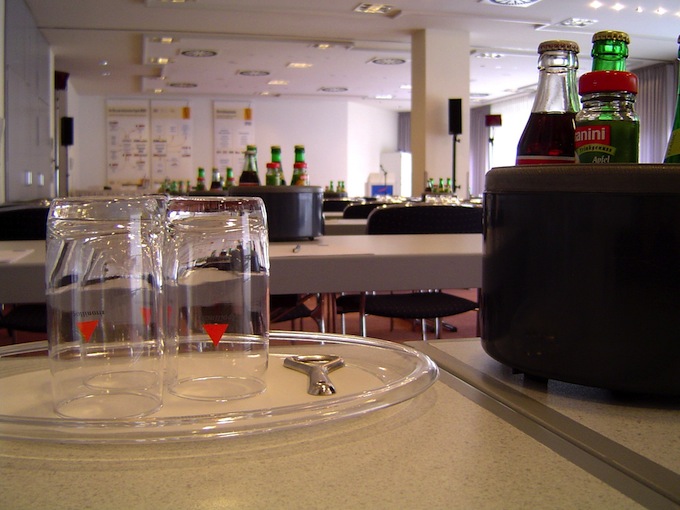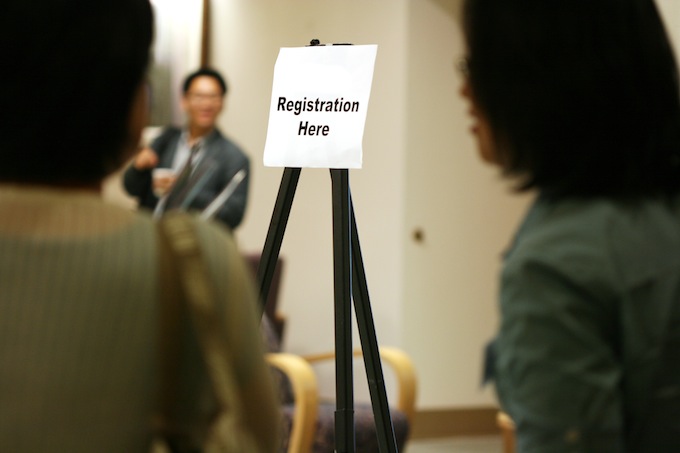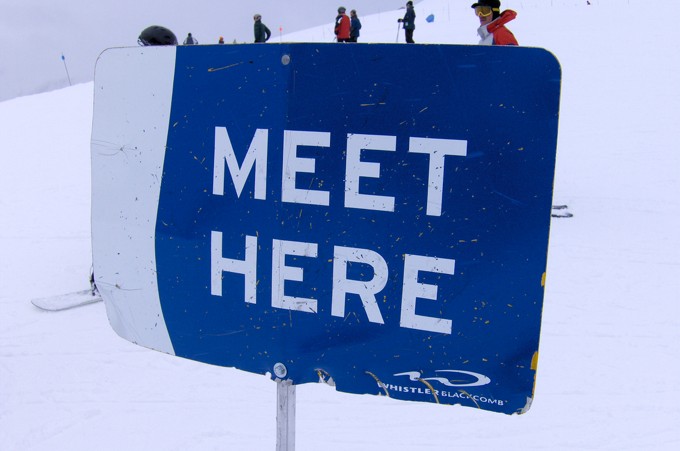Top Event-Planning Conferences You Won’t Want to Miss This Year
- Posted in:
- Essential Tips
- Guest Posts
- Industry News
Anyone in the meetings and event planning business knows what a busy industry it is. This fast-paced, customer-focused field runs continually throughout the year, giving event planners and their teams little down time to take care of themselves.
In the midst of planning conferences and events for their clients, event planners can benefit from attending one or two conferences, as well. Conferences and conventions focused on the event planning business can provide planners with an opportunity to relax, be rejuvenated with new ideas, and feel refreshed and enthusiastic about going back to their clients.
While there are many event planning conferences, these are a few of the ones you won't want to miss this year.

Momentary quiet before the conference begins.
National Association for Catering and Events (NACE), Expo 2013.
It's right around the corner, but you'll still want to mark your calendar for the NACE 2013 Expo in Chicago from July 14th through the 17th. Event planners, caterers, and other professionals can take their businesses to the next level with workshops, networking, contests, and showcases.
Meeting Professionals International (MPI) World Education Congress.
On July 19th, nearly 3,500 people from the event planning industry will converge to Las Vegas for this year's World Education Congress. With sessions focused on career development, business, and leadership, MPI provides a four-day conference that's full of expert knowledge imparted at about 125 different sessions, a trade show, networking opportunities, and good, old-fashioned fun.
International Special Events Society (ISES) Eventworld.
Paradise Island, Bahamas, is the location of the next ISES Live Nassau 2013 Conference. Event-planning professionals will have the opportunity to be inspired and gain knowledge through creative and interactive workshops. Participate in breakout sessions and listen to keynote speakers share their insight. You'll leave this three-day conference, held August 22nd to 24th, feeling invigorated and excited.
2014: The Special Event.
Wedding planners, caterers, and other event planners won't want to miss The Special Event in Nashville, TN, from January 7th through the 10th. This four-day extravaganza is jam-packed with professional development sessions, trade shows, and various track programs geared toward specific industries and groups. Held at the Gaylord Opryland Resort and Convention Center, this conference will be a great way to kick off the New Year.

Event planners can keep up with what's new in the industry by attending a conference.
Get Started, Get Involved
The best way to get involved in event-planning conferences that suit you best is to join your local or regional event-planning association. These associations work tirelessly to bring members current news regarding professional development opportunities, networking meetings, and upcoming conferences.
Join a local association and get involved as a volunteer, if possible. You'll be up close and personal with all that's new and exciting in the event-planning industry, which will ignite that passion and enthusiasm your clients appreciate so much. Although it may not be possible to attend more than one conference per year, doing so is beneficial to you as a professional, and your clients will directly benefit from your attendance, as well.
Mary Ylisela is an author who writes about business, professional development and tourism for organizations such as Reputation.com.
 Market share and mindshare: A successful event can bring heaps of both kinds of attention to your business. The key is to plan it so that your execution is flawless. That's where the practical concerns such as insurance, safety, security, and logistics come into play. Many decide to hire an event planner once the scale of even a "small" event is understood.
Market share and mindshare: A successful event can bring heaps of both kinds of attention to your business. The key is to plan it so that your execution is flawless. That's where the practical concerns such as insurance, safety, security, and logistics come into play. Many decide to hire an event planner once the scale of even a "small" event is understood.


 About the Author: Dennis Shiao is Director of Product Marketing at INXPO and author of the book “
About the Author: Dennis Shiao is Director of Product Marketing at INXPO and author of the book “